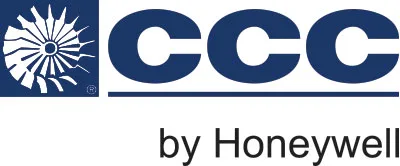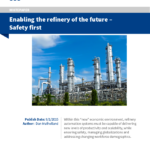

- Industries
- Solutions
- Services
- About CCC
- Media Center
- Contact
Enhance your turbomachinery performance and reliability by leveraging the power of digital and embedded expertise.
WATCH NOWEnabling the Refinery of the Future – Safety First
Within this “new” economic environment, refinery automation systems must be capable of delivering new levels of productivity and scalability, while ensuring safety, managing globalizations and addressing changing workforce demographics.

Fill out the form to download the FREE white paper “Enabling the Refinery of the Future – Safety First”.
Download your FREE copy today!
Contents Preview
The recent downturn in oil prices has reduced feedstock purchasing costs for the hydrocarbon processing industry (HPI). As a result, refineries are running above and beyond their design parameters. This, in turn, has increased the pace of expansion, upgrades, modifications and the number of debottlenecking projects to accommodate increasing throughput.
Within this “new” economic environment, refinery automation systems must be capable of delivering new levels of productivity and scalability, while ensuring safety, managing globalizations and addressing changing workforce demographics. Is the current automation infrastructure ready for this, and are these issues being given the appropriate priority levels?
Today’s infrastructure
The refinery of the future (ROF) is focused around the improved capture of data, retention and definition of knowledge and overall clarity. However, it does not refer solely to a new facility, but it also incorporates and embraces the desired functionality and operation of existing systems/sites.
Justification must exist for requirements to be introduced into these expedited brownfield projects, and the catalyst for real change needs to be centered more on the avoidance of unacceptable risk. Since the explosion and resulting fire on the Piper Alfa North Sea oil production platform in 1988, which killed 167 men and caused a loss of approximately $3.4B, the industry has moved towards safer working practices under IEC 61511, or equivalent, guidelines.